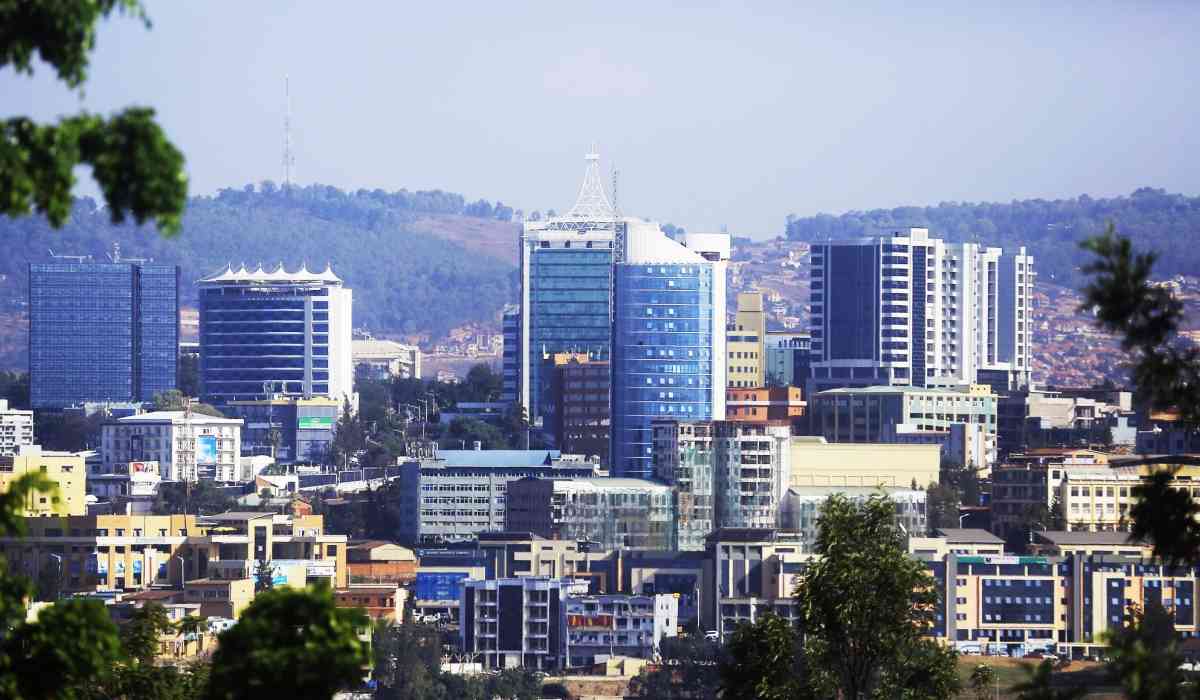
Kigali is set to domicile the headquarters of the United Nations Development Programme’s (UNDP) innovation financing facility, also known as Timbuktoo, following the official launch of the initiative at the ongoing World Economic Forum (WEF) in the Swiss town of Davos.
Expected to be hosted at the Kigali International Financial Centre (KIFC), the initiative aims to invest over $1 billion in catalytic and commercial capital, over the next 10 years to build a distributed innovation network of eight pan-African hubs located in key ecosystems.
Under the development, over 1,000 startups are targeted from across the continent, as part of UNDP’s efforts to spark Africa’s startup revolution.
“This is a very important milestone,” said President Paul Kagame at the launch. He added; “Indeed, Africa has the labour force to solve some of the world’s most pressing challenges.”
Kagame who is attending the World Economic Forum (WEF) was joined by Ghana President Nana Akufo-Addo, UNDP administrator Achim Steiner, among other high-ranked officials at the launch of the initiative.
While Africa boasts of many success stories of innovative solutions, Kagame said that too often, “Africa’s start-ups lack the funding to compete at a global level.”
He asserted: “We can’t accept that another generation of African young people do not have the tools to reach their full potential.”
Timbuktoo is expected to address the gap in early-stage risk capital while aiming to grow global-class start-ups and unlock the ‘One Africa market’.
- Zimbabwe has much to learn from Rwanda’s progress
- Zimbabwe has much to learn from Rwanda’s progress
- Kagame accuses DR Congo leader of dishonouring deals
- Rwanda's ruling party elects woman to deputise Kagame
Keep Reading
“With this initiative, we can create more opportunities for Africa’s youth to put their talent and creativity to good use. This means closing the employment and skills gap not only within our continent but also the rest of the world.”
Kagame pointed out that imbalances in human capital development are one of the main causes of migration.
“Timbuktoo’s vision aligns with Rwanda’s innovation ecosystem. Rwanda is open for anyone to come and test their solutions.
“It is a privilege to host the headquarters and we are very happy to have the Africa innovation fund domiciled within the KIFC.”
Rwanda to commit $3 million
At the launch, President Kagame also announced that Rwanda would commit about $3 million to the new initiative.
“I’m also pleased to announce that Rwanda will commit $3 million to the fund. We will also do our part to mobilise other contributors, friends, and partners to add their support.
“The world is changing fast and we must adapt. With the launch of this initiative, I am confident that we are already on a good path.”
For context, Timbuktoo is Africa’s largest initiative in the world to support the continent’s innovation startup ecosystem.
With an unparalleled surge in private venture capital investments, growing six times faster than the global average in 2022, experts argue that with a vibrant youthful population and rapidly expanding tech startups, Africa is a future tech powerhouse.
Already, key African companies are leading in some global digital technologies, such as mobile money, and millions of people are leapfrogging traditional development paths.
UNDP’s first-of-its-kind Timbuktoo initiative aims to address urgent gaps and work with African governments, investors, the private sector, and academia to build the startup ecosystem of the continent.
“I am excited about the future of the continent and ultimately look forward to us creating a future where innovation is supported, ingenuity is encouraged, and prosperity is shared,” added President Akufo-Addo.
For Steiner, Africa’s start-up talents are the world’s greatest untapped potential. He said Timbuktoo builds an ecosystem to nurture ideas and also offers hubs of excellence to take ideas to market to drive sustainable development.
“It’s also about bringing together corporates, ecosystem builders, and venture capital with government to ensure a pan-African hub.
“This is an idea that has grown out of many different experiences around innovation and the realisation that unless you build an ecosystem, you will often fail to attract precisely the people that you are looking for.
“A lot is said about unicorns and venture capital, we all know that Africa is home to millions of ideas that could drive the future of development globally, some of which we have already glimpsed. But the vast majority don’t live in communities that attract international investments,” he said.
“There are people, who with a degree of opportunity of education but also an ecosystem that can support them can become absolute development revolutionists in the sense of transforming development pathways.”
Timbuktoo, Steiner pointed out, is an attempt to create a platform on which Africa will be able to advance the notion of building ecosystems.
“We have several countries whose leadership will support us to quickly make this initiative a magnet for those who believe that it is these kind of platforms and ecosystems that we need to build.”
How it works
Timbuktoo’s parent fund, UNDP said, will finance a venture builder in each of the eight hubs and invest minority capital to de-risk private capital in a subsidiary fund in each hub.
Each hub and its fund will specialise in an industry vertical, from fintech to creatives, logistics, agritech, and et cetera, to become the pan-African innovation centre for that sector.
Meanwhile, the hubs, privately managed independent entities, will work closely with corporates, talent centres, universities, and ecosystem actors.
The initiative comes at a time when the world is emerging from a global pandemic, with a strong emphasis on innovation as a path to resilience and recovery.
Like the rest of the world, Africa has also experienced a surge in tech and tech-enabled start-ups, with last year’s venture capital funding nearly increasing by four times.







